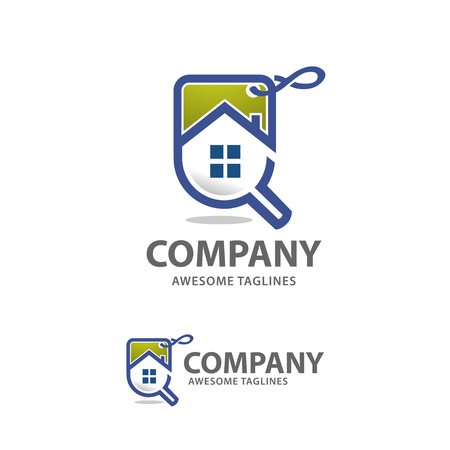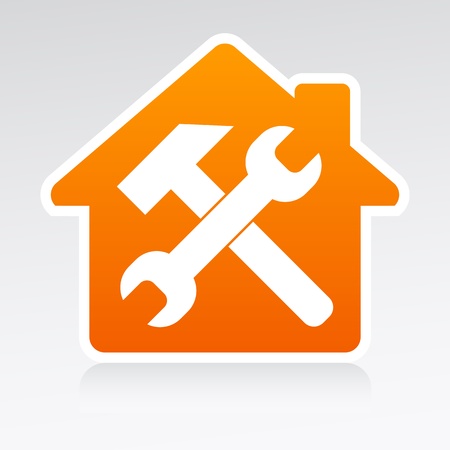1. What Is a Specialized Home Inspection?
When youre buying a home or maintaining your current one, you may already know about general home inspections. But did you know that some issues might go unnoticed without a closer look from a specialist? That’s where specialized home inspections come in. These focus on specific systems or areas of the home—like plumbing, electrical, roofing, foundation, and HVAC—to identify problems that a general inspector might miss.
General vs. Specialized Inspections
A general home inspection gives you an overall picture of the propertys condition. It’s usually done when buying or selling a house and includes a basic review of all major systems. However, general inspectors arent licensed experts in every field. If they notice something unusual, they’ll recommend a specialized inspection.
| Type of Inspection | What It Covers | Who Performs It |
|---|---|---|
| General Home Inspection | Basic review of structure, roof, plumbing, electrical, HVAC, etc. | Licensed Home Inspector |
| Plumbing Inspection | Pipes, drains, water heaters, sewer lines | Licensed Plumber |
| Electrical Inspection | Wiring, outlets, panels, circuit breakers | Licensed Electrician |
| Roof Inspection | Shingles, flashing, gutters, attic ventilation | Roofing Specialist |
| Foundation Inspection | Cracks, settling, drainage issues | Structural Engineer or Foundation Expert |
| HVAC Inspection | Heating and cooling systems, ductwork | HVAC Technician |
Why Specialized Inspections Matter
If youre serious about protecting your investment or making sure your dream home doesn’t turn into a money pit later on, specialized inspections are worth considering. For example, a general inspector might see signs of slow drainage but only a plumber can confirm if there’s a serious issue with the sewer line. Likewise, only an electrician can safely evaluate outdated wiring or overloaded panels.
When Should You Consider One?
- You’re buying an older home (20+ years)
- The general inspector flags possible issues during their report
- You notice signs like water stains on ceilings or flickering lights
- You want peace of mind before making a large investment in repairs or renovations
The bottom line: while general inspections are great for getting the big picture, specialized inspections dig deeper to uncover hidden problems that could cost you more down the road.
2. When Should You Consider a Specialized Inspection?
Not every home inspection needs to go beyond the basics, but there are certain situations where calling in a specialist makes a lot of sense. Whether youre buying an older property, dealing with specific repair concerns, or meeting insurance or loan requirements, specialized inspections can help uncover hidden issues before they turn into expensive problems.
Older Homes
If youre looking at a home thats 30 years old or more, its wise to consider inspections for systems that may have aged out of their safe or efficient lifespan. Older homes often come with outdated plumbing, electrical wiring, and roofing materials that arent up to current code.
| System | Potential Issues in Older Homes |
|---|---|
| Plumbing | Galvanized pipes prone to corrosion and leaks |
| Electrical | Knob-and-tube wiring or insufficient amperage for modern needs |
| Roof | Aging shingles or outdated materials like wood shake |
Specific Repair Concerns
If the general inspector notes signs of water damage, electrical flickering, or sagging in the roof during a routine check, its best to bring in a licensed specialist. These experts can do a deeper dive into potential issues and recommend targeted repairs.
Examples of Red Flags:
- Moldy smells or visible moisture stains (call a mold specialist)
- Low water pressure or discolored water (consult a plumber)
- Flickering lights or frequent breaker trips (get an electrician)
- Missing shingles or ceiling leaks (schedule a roof inspection)
Insurance Requirements
Certain types of insurance policies — especially for older homes or homes in high-risk areas — might require additional inspections. For example, wind mitigation inspections are common in hurricane-prone states like Florida, and roof certifications may be required to get coverage.
Common Insurance-Driven Inspections:
- Four-point inspection: Covers HVAC, plumbing, electrical, and roofing systems (common in Florida and other coastal states)
- Wind mitigation: Checks your homes ability to withstand strong winds (often reduces premiums)
- Roof certification: Needed if the roof is over a certain age (varies by insurer)
After Natural Disasters
If your area has recently experienced a natural disaster—like an earthquake, hurricane, flood, or wildfire—it’s smart to schedule specialized inspections. Even if everything looks fine on the surface, structural damage can go unnoticed without expert evaluation.
Disaster-Specific Inspection Recommendations:
| Event | Recommended Specialist |
|---|---|
| Earthquake | Foundation and structural engineer inspection |
| Hurricane/Windstorm | Roof and window/door integrity check |
| Flooding | Mold inspection and electrical system assessment |
| Wildfire | Soot/smoke damage inspection and HVAC cleaning evaluation |
No matter what triggers the need for one, specialized inspections give you peace of mind that your home is safe, functional, and ready for whatever comes next.

3. Plumbing Inspections: Leaks, Pipes, and Sewer Lines
When buying a home or maintaining your current one, plumbing inspections are essential to avoid costly surprises. A specialized plumbing inspection goes beyond checking if the faucets work — it gives you a full picture of your plumbing systems health.
What’s Included in a Plumbing Inspection?
A typical plumbing inspection covers several key areas of your homes water system. Here’s what professionals usually look for:
| Inspection Area | What the Inspector Checks |
|---|---|
| Leaks | Visible signs of water leaks under sinks, around toilets, and near appliances |
| Water Pressure | Ensures consistent and safe pressure levels throughout the home |
| Pipes | Checks for corrosion, damage, or outdated materials like galvanized pipes |
| Sewer Lines | Uses specialized cameras to inspect underground sewer lines for blockages or cracks |
| Water Heater | Verifies proper function, safety valves, and checks for sediment buildup |
Why It Matters
Small leaks can lead to mold, structural damage, and inflated water bills. Hidden issues in sewer lines might not show up until there’s a major backup. A thorough inspection helps catch these problems early.
Camera Inspections for Sewer Lines
This high-tech part of the inspection involves snaking a waterproof camera through your main sewer line. Its a non-invasive way to identify root intrusion, pipe collapse, or severe clogs that could result in expensive repairs if left untreated.
When Should You Get One?
You should consider a plumbing inspection when:
- You’re buying an older home
- You’ve noticed slow drains or low water pressure
- Your water bill suddenly increases without explanation
- You haven’t had one in several years
A specialized plumbing inspection offers peace of mind and can save you from unexpected repair costs down the road.
4. Electrical Inspections: Wiring, Panels, and Code Compliance
Electrical systems are one of the most important—and potentially dangerous—parts of any home. Whether youre buying an older property or planning a renovation, a specialized electrical inspection can help prevent serious safety issues and expensive repairs down the line.
Why You Might Need an Electrical Inspection
Over time, electrical components can wear out, become outdated, or simply not meet current safety codes. This is especially common in homes built before the 1980s. If you’re experiencing flickering lights, frequent breaker trips, or planning to add new appliances or living spaces, it’s smart to get things checked out by a licensed electrician.
What Inspectors Look For
An electrical inspection covers much more than just looking at your outlets. Here are some key areas a specialist will review:
| Inspection Area | What It Involves |
|---|---|
| Wiring | Checking for outdated (e.g., knob-and-tube) or damaged wiring that may pose a fire risk. |
| Electrical Panel | Ensuring proper capacity and identifying overloaded circuits or old fuse boxes. |
| Grounding & Bonding | Verifying that your system is properly grounded to prevent shocks. |
| GFCI/AFCI Protection | Making sure outlets in kitchens, bathrooms, and other wet areas meet code requirements. |
| Code Compliance | Confirming that all components meet local building codes and national safety standards. |
When Is an Electrical Inspection Most Critical?
- Buying an Older Home: Homes built decades ago may have wiring that no longer meets today’s standards.
- Before a Major Renovation: Adding square footage or new appliances can strain your current system.
- If You Notice Warning Signs: Buzzing sounds, tripped breakers, or warm outlets should never be ignored.
- After DIY Work: If past homeowners made their own upgrades without permits, it’s best to double-check everything is safe.
A thorough electrical inspection can give you peace of mind and help avoid costly problems later. It ensures your home is not only up to code but also safe for your family and future-proofed for modern living.
5. Roof and Structural Inspections: Ensuring Integrity and Safety
When buying a home or maintaining your current one, roof and structural inspections are essential to ensure the property is safe, secure, and built to last. These inspections help detect hidden problems that could lead to costly repairs or pose safety risks down the line.
What Inspectors Look for in Roof Inspections
A roof inspection focuses on the condition of shingles, flashing, gutters, and other roofing components. Inspectors are trained to spot signs of damage that may not be obvious to the untrained eye.
| Roof Element | What Inspectors Check For |
|---|---|
| Shingles | Cracking, curling, missing shingles, or signs of aging |
| Flashing | Proper installation and signs of rust or gaps that could cause leaks |
| Gutters & Downspouts | Blockages, improper drainage, or water damage near the foundation |
| Signs of Leaks | Stains on ceilings or attic sheathing, mold growth, or damp insulation |
The Importance of Structural Inspections
The structural part of the inspection checks how sound the homes bones are—its foundation, framing, walls, and support beams. Even small issues here can lead to big problems if not addressed early.
| Structural Component | Potential Issues Found |
|---|---|
| Foundation | Cracks, settling, moisture intrusion, or shifting that affects stability |
| Crawl Spaces & Basements | Dampness, poor ventilation, pest infestations, or wood rot |
| Main Support Beams & Joists | Sagging floors or bowing walls indicating stress or failure |
Why These Inspections Matter
If the roof leaks or the structure is compromised, it can affect everything from energy efficiency to personal safety. Detecting these issues before they worsen helps homeowners plan for repairs and avoid surprises during resale or insurance claims.
Tip:
If youre buying an older home or notice signs like water stains on ceilings or doors that dont close properly, consider hiring a specialized inspector for a thorough evaluation.
6. How to Choose the Right Inspector
When it comes to specialized inspections—like plumbing, electrical, roofing, or HVAC—choosing the right inspector is just as important as deciding which systems need checking. Hiring someone who’s qualified, licensed, and experienced can save you time, money, and stress in the long run. Here’s what to look for when selecting an inspector.
Check for Proper Licensing and Certification
Different states have different licensing requirements for inspectors. Make sure the specialist holds a valid license in your state and has certifications relevant to their field of expertise. Some common certifications include:
| Inspection Type | Recommended Certifications |
|---|---|
| Plumbing | State Plumbing License, PHCC Membership |
| Electrical | Licensed Electrician, NEC Knowledge |
| Roofing | Certified Roofing Inspector (CRI), NRCA Member |
| HVAC | NATE Certification, EPA 608 Certification |
Ask About Experience and Specialization
General home inspectors might not have the deep knowledge needed for complex issues. For example, if youre worried about old wiring or plumbing in a vintage home, youll want someone who specializes in those areas. Ask how many years theyve been inspecting that specific system and what kind of homes or properties they usually work with.
Review Sample Reports
A good inspector should be able to provide sample reports. Look for detailed notes, clear explanations, and photos that make it easy to understand what’s going on—even if you’re not a technical person. Avoid inspectors who only offer vague or overly brief assessments.
Look for Transparency and Communication
You want an inspector who is upfront about pricing, scheduling, and what the inspection includes. They should also be willing to answer your questions in plain language without pushing unnecessary services.
Quick Tips for Hiring a Specialized Inspector
- Check online reviews and ratings on sites like Yelp or Google.
- Ask friends or real estate agents for referrals.
- Make sure they carry liability insurance and errors & omissions (E&O) coverage.
- Request a written agreement outlining the scope of work before they start.
Choosing the right specialist ensures your homes critical systems are inspected thoroughly by someone who knows exactly what to look for—and how to explain it clearly to you.

